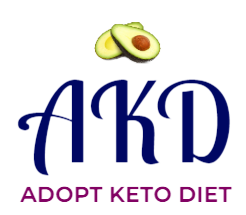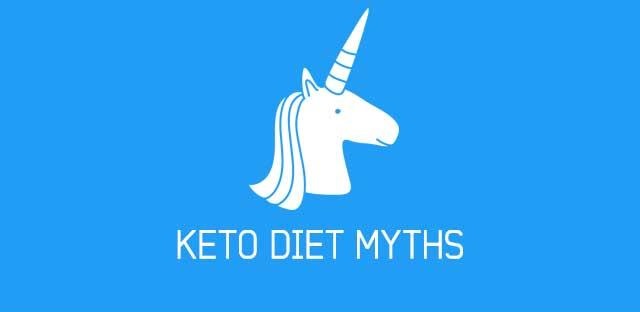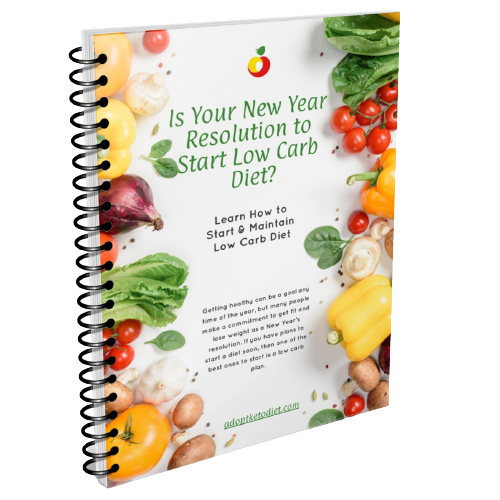Introduction
The ketogenic diet, also called the keto diet, is gaining popularity in recent times as an effective strategy for losing weight and general improvements in health. The ketogenic diet, which is low in carbohydrates and high in fats, concentrates on the consumption of fats and reduces carbohydrate consumption, causing your body to enter a metabolic state called ketosis. In spite of its widespread adoption and successes, the keto diet frequently has doubts and misconceptions about its efficacy, safety, and sustainability over the long term.
Based on the idea of making use of fat as the principal source of energy instead of carbohydrates The keto diet has attracted interest not just for its ability to shed excess weight, but also due to the potential benefits it can bring to controlling various ailments. From enhancing insulin sensitivity to enhancing cognitive functioning, the advocates of the keto diet boast of its numerous benefits and transformational results for overall health.
Nevertheless, in the midst of the frenzied discussion about the keto diet, many myths and misinformation have been uncovered, casting doubt over its validity and security. Addressing these misconceptions and giving solid evidence is vital for those considering the keto diet or looking to clear up common myths. Through this thorough exploration, we explore the intricacies of keto, break down popular myths and provide a better understanding of the potential benefits that it can bring to weight reduction. By gaining knowledge of the keto diet, a reader can make an informed decision regarding its appropriateness for fitness and health objectives.
What is the Keto Diet?
The ketogenic diet, often called “keto,” is a lifestyle plan for cutting down on carbohydrates, and then substituting them with fat. The shift in the body’s energy source is what makes the ketogenic diet distinctive.
In general, carbohydrates break down into glucose, which the body uses to provide energy. When you restrict carbohydrates (usually in the range of less than 50 grams daily) the body goes into a metabolic state, known as ketosis. The liver begins to convert ketones into molecules, and they are then utilized as energy by a variety of organs and even the brain.
There are two major reasons why individuals might decide to adhere to a ketogenic diet: weight loss as well as medical treatment. Since the body burns fat to generate energy, rather than glucose, the keto diet may result in a substantial weight reduction. In addition, keto is proven efficient in the treatment of specific medical conditions, such as epilepsy, in particular children whose medications haven’t proved effective.
It is important to remember that keto isn’t suitable for everyone. There may be adverse negative effects at first, often referred to as “keto flu,” which includes headaches, fatigue, and constipation. It is also important to talk to your doctor prior to beginning keto, particularly if you are suffering from any health issues.
The focus is on fat-rich foods with low carbs, the keto diet is a major change regarding the kinds of foods you consume. Eggs, meat, fish, nuts, seeds and healthy oils are staples of your diet and grains, sweet drinks and starchy veggies are severely restricted. Although keto is a great option in weight loss, and for some medical issues, It is important to take keto with care and with the help of a health expert.
Myth 1: The Keto Diet is All About Eating Bacon and Butter
The ketogenic diet, commonly abbreviated to “keto,” emphasizes fat as its main fuel source. It has also led to the untruth the ketogenic diet is an unrestricted way to indulge in fat-laden foods such as bacon or butter. Although fat is the main ingredient in keto, it’s vital to recognize that the different kinds of fats don’t have to be to be equal.
Although bacon and butter could definitely be part of the keto diet in moderate amounts, the emphasis should be on the healthy fats that supply a wide range of nutrients. They include unsaturated fats in avocados, fish that are fatty, like tuna and salmon seeds and nuts, as well as olive oil. They have been associated with a variety of health benefits, such as reducing inflammation, improving cardiovascular health, and increasing brain activity.
A plate full of butter and bacon may initially make you feel fuller because of their high fat content, however, they won’t offer the complete nutrition your body requires. The result is deficits in essential minerals, vitamins, and fiber.
A keto-friendly diet that is balanced includes diverse low-carb vegetable options that provide essential vitamins as well as fiber, which can aid in digestion, and make you feel more full throughout the day. Lean protein sources like fish, chicken, and eggs are essential for maintaining the strength of your muscles and your overall well-being.
Consider the keto diet as an orchestrated symphony, not an unruly flurry of indulgences in fats. Although butter and bacon can serve as backups, it is important to focus on healthy fats as the primary performers. Alongside an array of healthy low-carb proteins and vegetables. A balanced diet will allow you to benefit from keto as well as maintain your overall health.
Myth 2: The Keto Diet is Unsustainable for Long-Term Health
The strict nature of ketogenic diets is a reason for the misconception that they’re incompatible with longevity. Although significant changes are needed, keto is an effective option for certain people when approached in a strategic manner.
The other issue is the social element of dining. Keto may feel lonely in the event that meals with friends or relatives revolve around food items that are not allowed in the keto diet. But with some imagination and preparation, you’ll be able to discover keto-friendly options or alter portion sizes so that you can still take part in gatherings with friends. In addition, there’s an increasing variety of keto-friendly meals and eateries, which makes it much easier to handle the social scene.
Another issue to be aware of is deficiencies in nutrients. In fact, the strict restrictions on carbs could cause a shortage of vital vitamins and minerals usually found in fruits, whole grains, and legumes. In order to combat this, including various low-carb veggies like broccoli, leafy greens, and cauliflower is vital. In addition, consulting with an experienced dietitian will aid in getting the vital nutrients you require by recommending supplements, should you require them.
The strict nature of keto may also cause hunger and problems staying on the keto diet plan for the long term. This is the reason ketogenic cycles (CKD) can help. CKD is a way of incorporating more carbs, which increases your body’s glycogen reserves and possibly makes the more strict keto phase more reliable. But, CKD requires careful planning and continuous monitoring under the supervision of a health expert.
The final outcome in achieving long-term health is contingent on the individual’s circumstances and objectives. This isn’t an all-inclusive approach. Consultation with a physician or a registered dietitian is essential to establishing whether keto is right for you, and, should it be, how to use it in a manner that promotes health over time and overall well-being. By tackling potential issues through planning and personalised adjustments, keto could be an effective diet plan for certain individuals.
Myth 3: The Keto Diet Causes Nutrient Deficiencies
The focus of the ketogenic diet on limiting carbohydrates raises questions about the possibility of nutritional deficiencies. This isn’t entirely true Certain minerals and vitamins can be found in fruits or whole grains. They also include legumes. These aren’t available in keto. But, with a thoughtful strategy, you’ll be able to address the issues and make sure you’re consuming the right nutrients that your body requires.
First of all, you must realize that not all carbohydrates are created equally. Although sweets and refined grains aren’t allowed in ketosis, a wide variety of low-carb veggies are loaded with important minerals and vitamins. The leafy greens of the garden, broccoli, bell peppers, and cauliflower are just some of the options. Incorporating a range of foods that have low carbs can go a long way to reducing deficiency.
Additionally, certain types of foods and seafood are naturally rich in vital nutrients. Fish that are fatty, such as tuna and salmon, are great sources of B vitamins, vitamin D, and omega-3 fats. Organ meats, though not to everyone’s taste, are powerhouse nutrients that are rich in iron, vitamin A, and B vitamins. Incorporating these meats into the keto diet can fill nutritional gaps.
Consider the benefits of supplements. Consultation with a registered dietitian could assist in identifying any nutritional deficiencies, based on your personal requirements and your dietary preferences. They will then suggest specific supplementation to fill in any nutrition gaps.
It’s important to keep in mind that a keto-friendly diet does not completely exclude fruit. Although some fruits are high in carbs, and must be avoided, others, such as blackberries and raspberries, may be included in moderate amounts.
If you focus on low-carb veggies, including nutrient-rich proteins as well as seafood, and focus on specific supplementation under the guidance of medical professionals, it is possible to effectively tackle deficiencies in nutrients that are commonly encountered with ketosis. Be aware that a properly planned keto diet can help your body get the necessary nutrition it requires and reap the advantages of this diet strategy.
Myth 4: The Keto Diet Leads to Muscle Loss
The focus of the ketogenic diet on the burning of fats for energy is causing concern about the loss of muscle. It is a significant expense for muscle to keep, and many consider that our bodies will breakdown muscle to generate fuel during ketosis. Although there are some variables to be considered, losing muscle during keto doesn’t have to be inevitable.
First, your body will prioritize easily accessible sources of energy. In the beginning stages of ketosis, it is possible that your body taps the glycogen reserves in your muscles. But, once ketosis is well established, your body gets skilled at making use of ketones for energy and reducing the need to breakdown the protein in your muscles.
In addition, the intake of protein is essential when following a ketogenic diet. As opposed to carbohydrates, protein can be consumed in a variety of ways. It is recommended that you consume enough protein each day in order to help support the development and maintenance of muscle. It is recommended to aim for 0.8 to 1 gram of protein per pound of body weight, which is a great start.
The third reason is that strength training has an essential role in maintaining muscles. In conjunction with keto-friendly diets and a healthy protein intake, resistance training can send signals to the body’s muscles to preserve and possibly build them up. Involving in weightlifting regularly or bodyweight exercise can help increase the synthesis of muscle proteins and help prevent muscle loss.
Research on keto’s effect on muscle mass has diverse findings. Certain research indicates that there is a minimal loss in muscle when compared with conventional diets, especially in cases where protein intake is adequate and strength training is integrated. Other studies, however, found a minor reduction in muscle mass when using keto.
The impact of keto-based diets on muscle mass is dependent on many aspects, such as individual metabolic rate, level of activity, and the amount of protein consumed. If you focus on protein, engage in exercises for strength, and possibly adjust the amount of protein you consume based on your individual requirements, you will be able to reduce the loss of muscle mass and possibly gain muscle by following the ketogenic diet. A consultation with a medical expert or registered dietitian will aid you in determining the ideal amount of protein and the best exercise regimen to meet your objectives and needs.
Myth 5: The Keto Diet is Harmful to Heart Health
The effect of keto on cardiovascular health is a nebulous and constantly evolving subject of investigation. Many believe that the excess fat content of keto means a higher risk of developing heart disease. There are a few factors to consider, but the overall picture isn’t all black-and-white.
There is a risk of an increase in LDL (“bad”) cholesterol for some people taking keto. It could be due to a higher intake of saturated fats. These can be found in processed and red meat food items. But, keto can lead to an increased level of HDL (“good”) cholesterol (“good”) too. HDL assists in removing LDL particles from the bloodstream, possibly reducing certain negative consequences.
Another aspect that affects the health of your heart when you are on keto is the kind of fat that is consumed. Although saturated fats can raise LDL cholesterol, choosing healthy fats, such as those that are unsaturated, such as avocados, olive oil seeds, and nuts, is vital. The fats are known to possess anti-inflammatory properties, as well as the potential to improve cardiovascular health.
Weight loss overall, an advantage of keto is a positive impact on the health of your heart by decreasing blood pressure and stress on the heart. Furthermore, keto may aid in controlling blood sugar levels, which is advantageous for people who suffer from prediabetes or diabetes and can further lower the risk of heart disease.
It’s crucial to know that studies from recent years suggest a link between keto diets (high-fat, moderate protein, low-carbohydrate) and a higher chance of having heart attacks. But, further research is required to determine the mechanisms involved and if this is the case for keto-friendly diets that are well-constructed and based on healthy fats.
In the end, the effect of keto on your heart will depend on each individual’s personal circumstances as well as the particular keto method implemented. Consult a physician or a registered dietitian prior to beginning keto, which is essential, particularly for people who have had previous heart issues. They will be able to help you create an individual plan to prioritize healthy fats, optimize protein intake, and monitor cholesterol levels to make sure that the health of your heart remains an important consideration. With a prudent and well-informed method, you could enjoy the advantages of keto, while also minimizing the potential dangers to your heart.
Myth 6: The Keto Diet is Only Effective for Weight Loss
The ketogenic diet requires a major change of your eating habits However, it doesn’t have to be one of the most boring journeys with boring restrictions. By experimenting and being creative, there is many delicious and healthy choices.
Let’s first address the myth that all carbs are forbidden. Although refined carbohydrates and sweet desserts are not allowed, a variety of veggies that contain low carbs are the basis of a nutritious keto-friendly diet. Bell peppers, leafy vegetables and broccoli, as well as cauliflower and zucchini, are some of the instances. These vegetables not only offer important minerals and vitamins, but they also provide vivid colors and texture to the food you serve.
The keto lifestyle provides a wide range of proteins. Salmon and tuna are fantastic sources of omega-3 fatty acids as well as vitamin D. Eggs, chicken, and various cuts of animal are all suitable for inclusion in the keto diet. Also, vegan protein options like tempeh or tofu could be incorporated for people following the vegan or vegetarian method.
In the third place, healthy fats can add an extra layer of flavor and fill you up with satiety food items. Avocados, olive oil, nuts, and seeds aren’t just allowed, but are encouraged in an eating plan. They provide a steady supply of energy levels and contain important nutrients to help improve your overall well-being.
With a bit of imagination, seemingly unattainable food items can be transformed to fit the keto diet. Low-carb flours such as almond flour and coconut flour let you bake keto-friendly muffins, cookies, and bread. Making experiments with herbs and spices will add a rich taste to your food, making your taste buds content.
There is a transition phase when you start keto. The wide array of low-carb veggies and protein sources, as well as healthy fats and inventive recipes, allow for the most diverse and exciting eating experience. Keep in mind that the web is an unending source of keto-friendly meals and recipe schedules, which makes it simpler to get inspired and make delicious recipes that meet your goals for keto. Therefore, let go of the idea of a boring and uninspiring diet and enter the new world of food and drink to discover on your keto diet.
Myth 7: The Keto Diet is Not Safe for Diabetics
The impact of the ketogenic diet on managing diabetes is a complicated issue. While it may be able to help diabetics in certain cases, it is important to consider this with caution and in the direction of a medical specialist.
A reason to be cautious in this strategy is that it could cause blood sugar levels to drop to a low level (hypoglycemia). The reason for this is that the keto diet dramatically decreases the intake of carbohydrates, which is the primary food source for blood sugar. If someone suffering from diabetes has already been taking medication to control blood sugar levels, The keto diet may require altering their dosage of medication in order to prevent hypoglycemia.
But, keto could also provide advantages for those suffering from diabetes. Limiting the intake of carbs may help to enhance blood sugar control as well as the sensitivity of insulin. It is particularly beneficial for people suffering from type 2 diabetes, where the body is unable to utilize insulin in a way that is effective. There is evidence that shows patients who are diabetic and following keto have fewer prescriptions.
These are the most important considerations that diabetics who want to consider keto
• See a doctor: Before starting keto, it is essential to talk to a physician or registered dietitian with expertise in diabetes management. They’ll assess your particular circumstances, assess whether keto is a good option, and then monitor the progress of your diet closely.
• Check Blood Sugar Levels: Continuously monitoring the levels of blood sugar is essential during the ketosis journey. This will allow adjustments to the diet and medication necessary to make sure that your blood sugar levels remain within a healthy range.
• The focus should be on healthy fats. Prioritize healthy fats, such as olive oil, avocados, seeds, nuts and others. They provide energy for a long time and do not cause blood sugar spikes.
• Maintain Protein Consumption: A healthy intake of protein is vital for people with diabetes for maintaining muscle health as well as help prevent the breakdown of muscle.
It is important to keep in mind that the ketogenic diet does not offer a one-size-fits-all solution for diabetics. Some may experience substantial benefits, while others may find it ineffective or may require a different keto program. Consultation with a health professional guarantees an effective and safe method that is suited to the needs of your particular goals for managing diabetes.
Myth 8: The Keto Diet Causes Brain Fog and Impairs Cognitive Function
The ketogenic diet’s emphasis on the use of fat as fuel has raised questions about the impact it has on the brain’s function. A few people experience “keto flu” symptoms like headaches, fatigue, and trouble focusing at the start of transitioning into ketosis. Research suggests, however, that the longer-term effects of keto on cognitive functioning could be more subtle.
The first issue is the transition from glucose (derived from carbohydrates) in favor of ketones to provide energy. This transition period of adaptation could result in temporary symptoms of brain fog while the brain adapts to the new source of fuel. But, research suggests that once ketosis has become established, the brain is able to use ketones, which could lead to improved cognitive performance for some people.
This is why keto may improve cognitive functions:
• Sustained Energy Ketones are a stable and long-lasting source of energy for the brain. Contrary to glucose, which could cause blood sugar surges and crash, ketones provide an energy source that is more stable and could help improve concentration and focus.
• Lower Inflammation Chronic inflammation is associated with cognitive decline. Diets that contain ketogenic ingredients can help lower inflammation throughout the body. This could benefit the health of your brain and improve cognitive performance.
• Improved Blood Sugar Control By limiting carbohydrates, keto may help improve blood sugar management. A stable blood sugar level can be neuroprotective, and aid in cognition.
It is important to remember that research into the effects that keto has in relation to cognition is ongoing and the results may vary based on the individual’s characteristics, such as their age, their overall health and their degree of adherence. There haven’t been any studies that show any significant differences in cognition functioning between keto-users as opposed to those who follow conventional diets.
Below are a few suggestions to think about to reduce confusion in the brain during the keto-to-keto transition:
• Be hydrated: Dehydration can worsen the fog in your brain. Try to drink plenty of fluids throughout the day.
• Electrolyte Resupply: Electrolyte imbalances can create confusion in the brain. Think about supplementing electrolytes, particularly potassium, sodium, and magnesium.
• Get enough Sleep: A good night’s sleep is vital for the cognitive process. You should aim for 7 to 8 hours of sleep at night.
• Slow Carb Reduction: The gradual reduction of carbohydrates can aid in the ketosis transition and could help decrease effects of brain fog.
If you’re worried regarding the effects of keto on your brain performance, speak to medical professionals. They’ll track your progress and offer advice about strategies for minimizing the potential adverse consequences. The effect of keto on the brain and cognitive function can vary from person to person. Some people may experience a temporary fogginess, others may notice their focus and mental clarity enhance after keto. A consultation with a health professional and trying out a customized plan could help you figure out if keto helps your cognitive functioning.
Myth 9: The Keto Diet is Too Restrictive
It is necessary to make an important change regarding your diet However, it doesn’t have to be an endless cycle of starvation. If you focus on flavorful and satisfying choices, you’ll be able to live a keto-friendly lifestyle that is nutritious and fun.
First of all, the notion that all carbohydrates are prohibited is a problem that needs to be re-examined. Although refined carbohydrates and sweet snacks are prohibited, an array of healthy vegetables are the foundation of a healthy keto-friendly diet. Bell peppers, leafy greens, and broccoli, along with cauliflower and zucchini, are several examples. They not only supply essential nutrients and vitamins; they also provide vivid colors, textures, and fibre to your food, which can help you feel fuller.
Additionally, the keto diet has a variety of protein sources that ensure you are satisfied and energetic. Salmon as well as tuna have great intakes of omega-3 fats as well as vitamin D. Eggs, chicken, and different cuts of meat are also a good addition to your keto-friendly meals. Also, vegan protein options such as tempeh and tofu can be incorporated into your diet for people who follow an entirely vegetarian or vegan way of life.
In the third place, healthy fats can add flavor and satisfaction to your food items. Avocados, olive oils, nuts, and seeds aren’t just permissible, they are actually encouraged when you follow the diet. They are a source of sustained energy, and they are loaded with vital nutrients to aid in general well-being. Making a variety of healthy types of seeds, nuts, and oils can add diversity and taste to the food you prepare.
With a bit of imagination, seemingly forbidden foods can be made into something that is suitable to fit into a keto-friendly lifestyle. Low-carb flour alternatives such as almond flour and coconut flour can be used to bake keto-friendly muffins, cakes, or even bread. Additionally, there are keto-friendly alternatives to rice and pasta, including zucchini noodles, and cauliflower rice.
In the end, the web is an unending source of keto-friendly meals and recipes menu plans. If you do a bit of research, you’ll discover some delicious and filling meals that meet your keto goals. From delicious low-carb desserts, to hearty main dishes There’s something to please all tastes.
Although there’s an adjustment phase when you start keto, the wealth of sources of protein as well as healthy fats and inventive recipes can provide the most diverse and pleasant diet. Keep in mind that concentrating on tasty and enjoyable alternatives is essential to sustaining successful ketosis. Thus, be open to exploring and let go of the idea of a bland and restrictive diet. The keto universe is waiting for you with an abundance of delicious options.
Myth 10: The Keto Diet is Not Suitable for Athletes
The ketogenic diet, which places it’s emphasis on fat as fuel, has led to controversy over its appropriateness for athletes. Though typically, carbohydrates are thought to be the main fuel source for exercising Recent research indicates that athletes are able to adjust and flourish on keto.
One of the most common concerns is the inability to access glucose during high-intensity workouts. This is especially the case in the beginning phases of ketosis, when your body transitions to burning fat as a source of energy. As ketosis gets established, the body becomes proficient in utilizing ketones, which are able to provide energy even during intense training.
Here’s what athletes may gain from ketogenic diets:
• Increased endurance: This adaptation of fat lets the body access a seemingly limitless storage of energy in the fat tissues. It could lead to an increase in endurance, particularly for athletes who compete over long distances. Research has shown that keto-adapted athletes have improved performance during endurance competitions.
• Lower Reliance on Carbs: Keto can help athletes lessen their dependence on sweet drinks and gels to get a quick energy boost after exercise. It can also be helpful for digestion and general endurance.
• Speedier Recovery: Some research suggests keto can aid in recovering muscle after exercise. This may be due to an increase in insulin sensitivity or less inflammation associated with keto.
But, for those who want to consider ketogenic diets, there are a few essential considerations:
• Gradual Transformation: The gradual decrease in carbohydrates allows your body to transition to ketosis better and reduces the chance of experiencing performance drops in the beginning of the transition.
• Strategic carb-ups (optional): Some athletes will strategically include a small amount of complex carbohydrates prior to intensive exercises. This could provide an easily and readily available energy source for immediate consumption, and could improve efficiency. But, it is important to be reviewed with a registered dietitian to be sure that it’s in alignment with your keto-related goals overall.
• Electrolyte Resupply: The body loses electrolytes such as sodium, potassium and magnesium via sweat. They are essential to muscle functioning and the transmission of nerve signals. Supplementing with electrolytes, especially prior to and after exercise, can help prevent muscle fatigue and cramps.
It is important to remember that each individual’s experience may be different. Consulting with a medical expert or registered dietitian who is familiar with keto is vital for athletes. They can assist in creating an individual plan to cater to the particular training routine you are following to ensure adequate water and electrolyte balance and improve your keto diet for optimal performance in athletics. With these suggestions as well as seeking advice from a health professional, athletes can discover the advantages of keto while keeping their performance at its peak.
Frequently Asked Questions (FAQs)
1. Do I have to eat carbohydrates while following the keto diet?
The keto diet limits carbohydrate consumption in order to trigger ketosis. Certain foods that are low in carbs and tiny amounts of berries are usually permissible. However, carb-rich foods such as sugars, grains and starchy vegetables must be avoided.
2. Could the ketogenic diet make me feel fatigued and unmotivated?
At first, certain people could experience signs of fatigue, also called “keto flu,” as their bodies adjusted to ketosis. Once they’ve fully adapted the body, a majority of ketosis sufferers report higher performance and stamina when following the keto diet.
3. Does the keto diet pose any risk for breastfeeding or pregnant women?
Women who are pregnant or nursing must consult with a healthcare professional prior to beginning the keto diet, since it may not suit everyone at this stage.
4. How much alcohol can I consume while following this keto-friendly diet?
Alcohol is a drink that can be enjoyed in moderation while following the keto diet. However, it’s crucial to pick low-carb choices such as dry wines, spirits, and light beer, as well as be cognizant of the total amount of carbohydrates consumed in order to keep ketosis in a steady state.
5. How long will it take to see improvements on keto?
Weight loss and other benefits associated with ketogenic diets vary between individuals. Although some people may notice fast weight loss during the beginning, others might experience more gradual improvements as time passes.
6. What are the typical side effects that are associated with the keto diet? What can I do to manage them?
Common side effects of ketogenic diets are “keto flu” symptoms, constipation, and fluctuations in energy levels. Refilling electrolytes, staying hydrated, and gradually increasing your intake of fiber can ease the side effects.
7. Can I put on weight again if I quit eating keto?
A weight gain can happen in the event that people revert back to unhealthy eating habits following the end of eating keto. It is important to make sustainable modifications, and engaging in regular exercise can aid in maintaining weight loss over time.
8. Do I have to eat out when following the keto diet?
It is possible to dine out when adhering to the ketogenic diet with low-carb choices, including salads, grilling meats, and a variety of vegetables. Inquiring about modifications and abstaining from foods high in carbs like pasta, bread, or syrupy sauces are a great way to keep you keto-friendly.
9. Is it essential to monitor the macros and calories of the ketogenic diet?
The tracking of macros and calories may help some people make sure they’re meeting their nutritional targets when following the ketogenic diet. But it’s not required for all, and intuitive eating habits based on hunger or feelings of fullness may work.
10. Do I have to follow a vegan or vegetarian diet?
It is possible to practice a vegan or vegetarian keto diet that is based on protein-rich plant sources and healthy fats, such as tempeh, tofu, seeds, avocados, and low-carb veggies. A careful meal plan is vital in order to get enough nutrients.
Conclusion
To conclude, dispelling the myths that surround ketogenic diets reveals their ability to function as an adaptable and efficient dietary strategy to enhance health and well-being. In addressing the myths surrounding the keto diet’s durability in terms of safety, efficacy, and sustainability, people can make educated decisions about the best way to integrate this nutritional approach into their daily lives.
Contrary to popular belief, the ketogenic diet can provide multiple benefits, in addition to weight loss. These include better metabolic health, improved cognition, and benefits for treating various health diseases. By focusing on careful planning and eating foods that are nutrient dense, people can have an extensive and balanced diet while still adhering to the fundamentals of the ketogenic diet.
It is essential to consider keto in a relaxed manner and consult with healthcare specialists, specifically for people who have underlying medical conditions or dietary restrictions. In addition, dietary desires and preferences may differ depending on the individual. This is a reason to consider individual methods for wellness and nutrition.
In the end, by removing misconceptions and adopting evidence-based information and knowledge, people can tap into the benefits of ketogenic eating to help them achieve their health goals and enhance their overall health. If you are looking to lose weight and metabolic improvement and other benefits for health The keto diet can be the potential to boost overall health and vitality when applied carefully and in a sustainable manner.






0 Comments